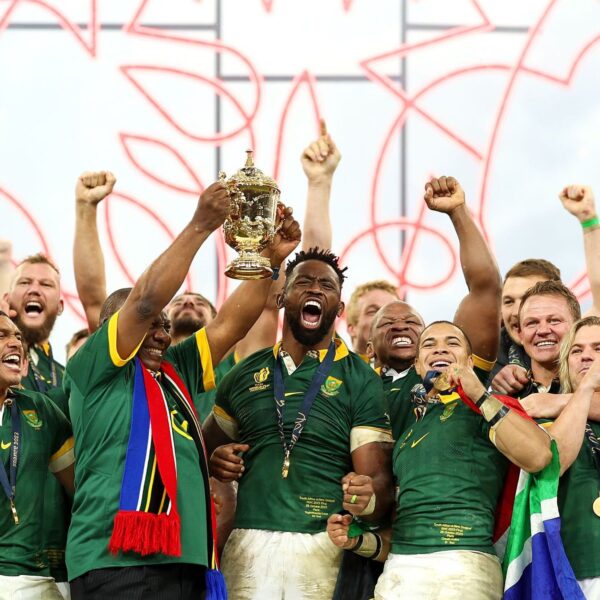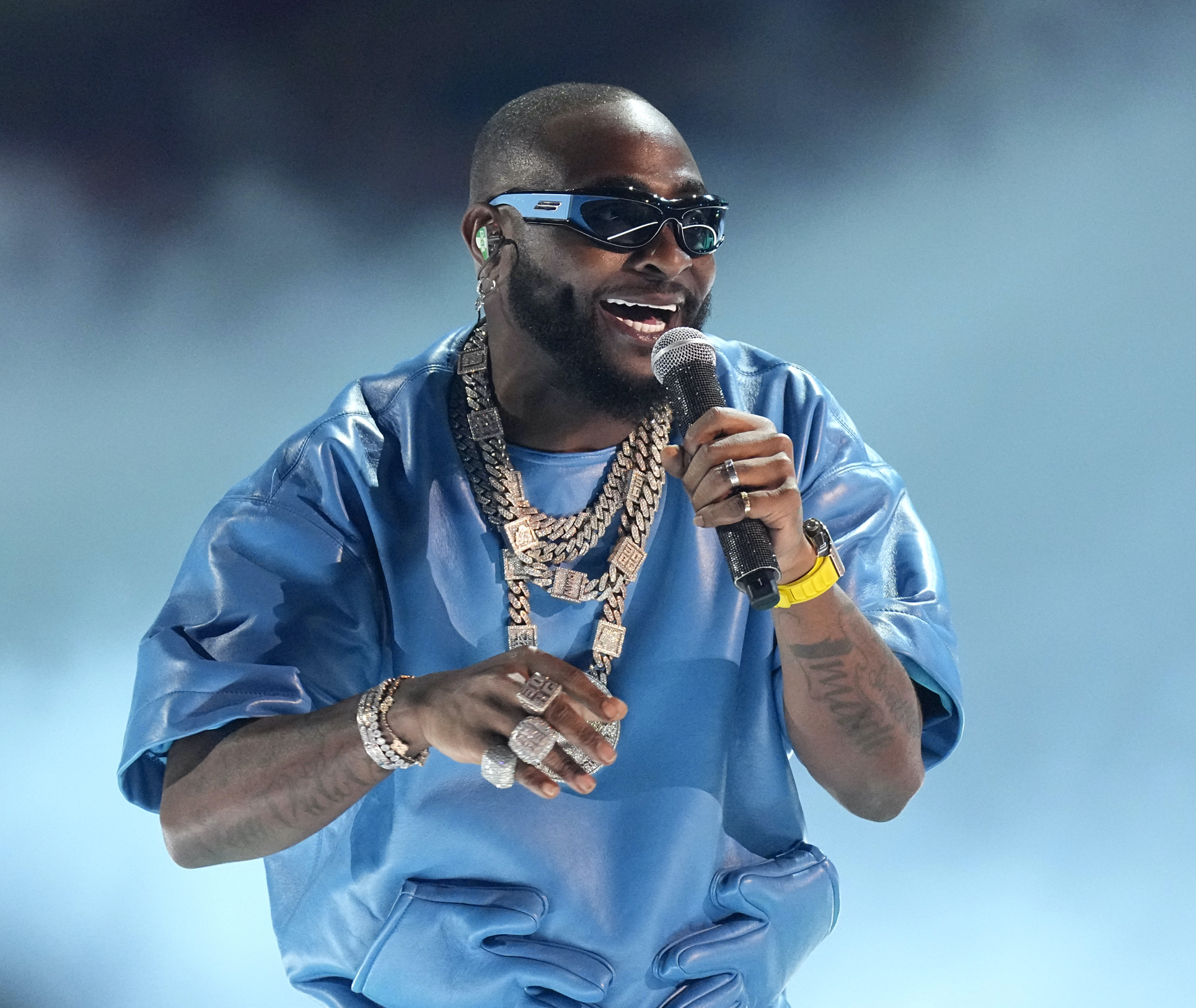
Photo credit: Julian Finney - World Rugby via Getty Images
Sports
Siya Kolisi: A Stellar Symbol of Strength and Social Change

Photo credit: Julian Finney - World Rugby via Getty Images
Siya Kolisi led the Springboks to Rugby World Cup victory, helping to unite South Africa and inspire change thirty years post-apartheid
By Karin Johansson
November 2023
From the dusty streets of an Eastern Cape township to the pinnacle of international rugby, Siya Kolisi embodies the indomitable spirit of overcoming adversity required to achieve greatness against all odds. As the first Black captain of the South African rugby team, the Springboks, Kolisi has not only become a beloved figure in his home country, but has also garnered respect on the global stage for his integrity, resilience, and unwavering commitment.
“Siya is such an incredible human being, and he has taken these opportunities to become probably the best South African captain in the history of South African rugby. Incredible how he plays, how he talks and how much he cares for rugby and for the people, and for South Africa,” lauded former Springbok captain Francois Pienaar at the World Rugby awards last Sunday.
Just 24 hours prior to Pienaar’s comments, Kolisi solidified his legacy, capturing the hearts of millions worldwide as he led the Springboks to a nail-biting one-point victory over New Zealand in Paris, securing back-to-back Rugby World Cup titles. With this victory, South Africa has etched its name in history as the only nation to clinch the tournament four times: in 1995 (when Pienaar was captain), 2007, 2019, and now in 2023. The Springboks remain the only team undefeated in a World Cup final, with Kolisi joining the elite ranks of captains who have successfully defended their country’s title, a feat previously achieved by New Zealand’s Richie McCaw in 2011 and 2015.
“Our country goes through a lot…we are just children from a third-world country who fight over and over for people who need hope. And this team shows just what diversity can do for our country. We just showed what we can do, and I’m so grateful for this team. I’m so proud of it,” Kolisi shared following their World Cup win.
From rural farming communities to townships and affluent neighborhoods in major cities, South Africa’s rugby team represents players from all walks of life. The majority have been teammates for more than five years, fostering a strong sense of camaraderie and unity reminiscent of the values upheld by former President Nelson Mandela.
Mandela, a staunch advocate of the unifying power of sports, famously stated at the inaugural Laureus World Sports Awards in 2000: “Sport has the power to change the world. It has the power to inspire. It has the power to unite people in a way that little else does. It speaks to youth in a language they understand. Sport can create hope where once there was only despair. It is more powerful than governments in breaking down racial barriers. It laughs in the face of all types of discrimination.”
Nearly three decades post-apartheid, South Africa continues to grapple with extreme inequality. A third of its population lives below the poverty line, unemployment rates have soared above 32%, and stark disparities in healthcare, education, and basic services persist, predominantly affecting Black citizens.
To counteract these imbalances, the government has initiated major transformation drives across all societal spheres. In the realm of rugby, progress towards diversity is evident; the apartheid era banned black players from national representation, but in the 1995 World Cup, Chester Williams broke the barrier. This year, players of color constituted around 40% of the 33-man squad.
Director of South African Rugby, Rassie Erasmus, who appointed Kolisi as captain back in 2018 and has played a major role in the transformation of the sport, envisions further progress through initiatives such as the Elite Player Development Program, aiming for 60% black representation in the national team by 2030.
“If you talk about transformation in any other country in the world, in any other place, it means change,” Erasmus recently told Supersport in an interview.
Erasmus, along with many South Africans, acknowledges that the impact of Kolisi’s leadership and the Springboks’ double World Cup triumph transcends the rugby field.
“For me, it’s a sense of pride, motivation for the country to work together, and for my little boys to take inspiration from the Springboks that you can become anything if you put in the work. For my wife, who is a super fan, it means more to her than anything else,” says Rajan Govender from Wellington, who was one of thousands of South Africans who greeted the team at the Cape Town International Airport on Thursday as they embarked on a national victory tour.
Kolisi and the Springboks have heralded a new era of inclusivity and serve as a poignant reminder of what can be achieved with determination, resilience, and belief in oneself and others. Kolisi is more than just a rugby player; he is a beacon of hope and an icon, proving that with passion and perseverance, anything is possible.


